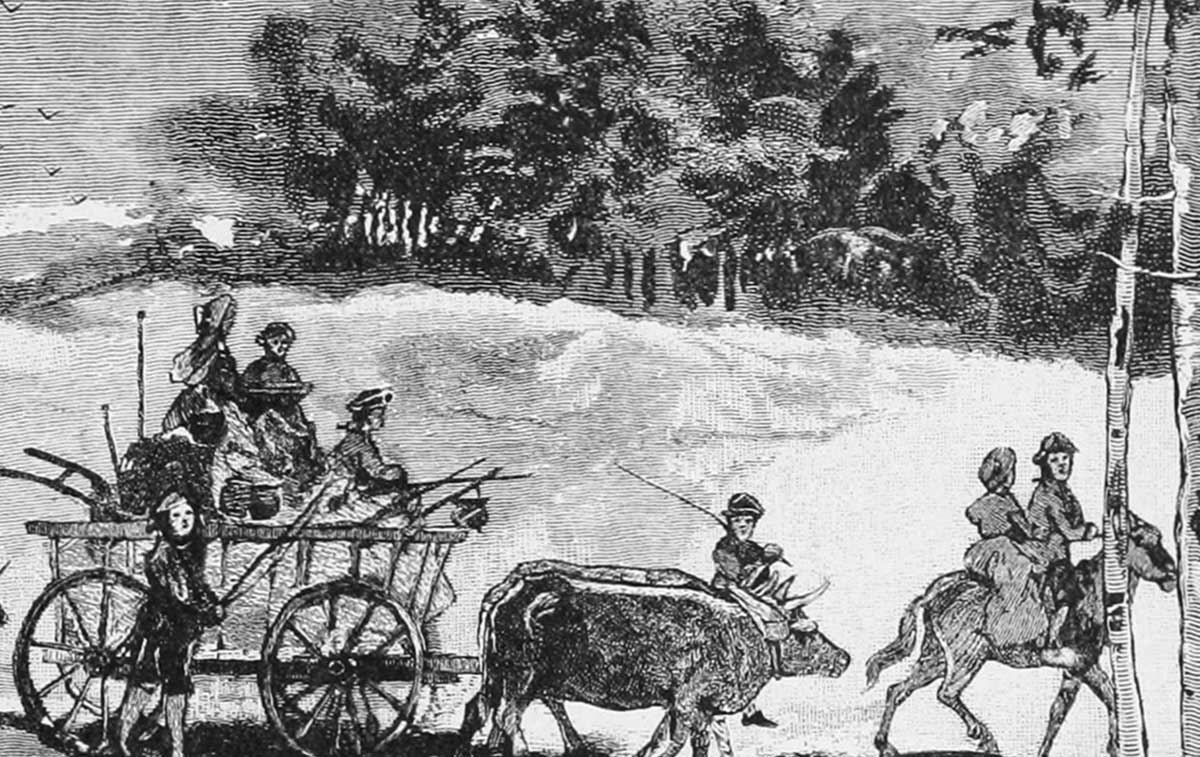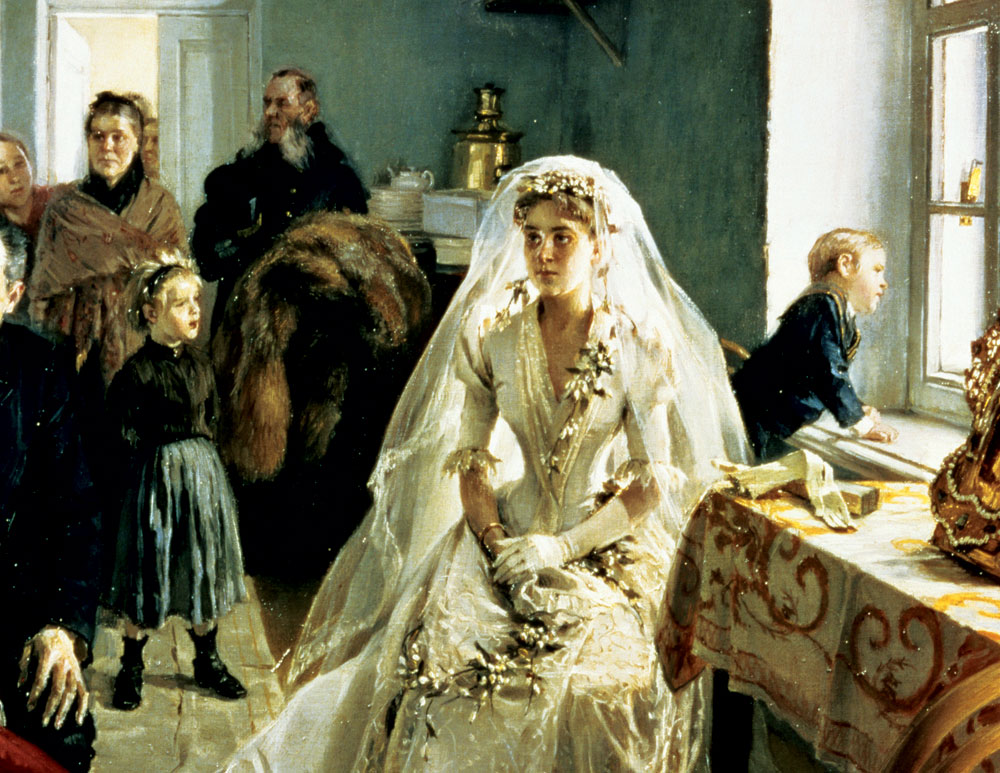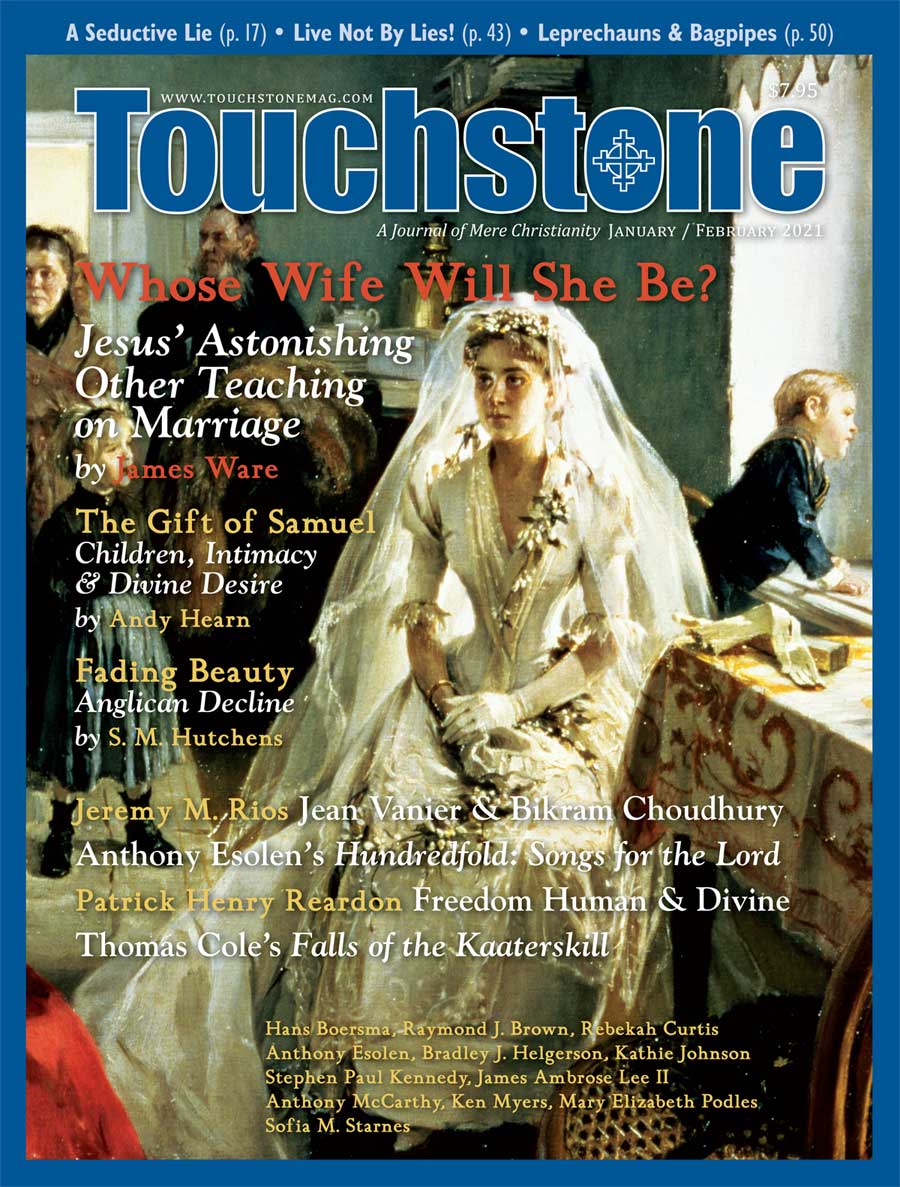Whose Wife Shall She Be?
Jesus' Astonishing Other Teaching on Marriage
Christian catechesis on marriage has traditionally focused—and rightly so—on Jesus' teaching regarding the origin, nature, purpose, and indissolubility of marriage in his encounter with the Pharisees on the question of divorce and remarriage (Matt. 19:1–12; Mark 10:1–12). The Catechism of the Catholic Church, for example, in its two treatments of matrimony (one in Part Two, in the discussion of the sacraments, and the other in Part Three, in the discussion of the sixth commandment), quotes or alludes to one or both of these texts no fewer than twenty times.
However, another occasion of our Lord's instruction on marriage has not received nearly as much attention: Jesus' teaching on matrimony given in his -interaction with the Sadducees on the topic of the resurrection (Matt. 22:23–33; Mark 12:18–27; Luke 20:27–40). The Catechism, in its two lengthy treatments of marriage aforementioned, mentions this teaching but once, and there only to make the point that "marriage is a reality of this present age which is passing away" (1619).
But Jesus' response to the Sadducees sheds light, not only on the status of marriage in the age to come, but on the nature of marriage in this present age. The passage reveals—in some respects uniquely so—the striking continuity of the Church's historic doctrine of matrimony with the mind and teaching of her Lord. In a time when critics on every side seek to call this continuity into question, this other teaching of Jesus on marriage offers important additional light. It is all the more valuable in that the topic at hand is not marriage per se, but resurrection. For the passage thus brings out, in a way unparalleled elsewhere in the Gospels, the underlying foundations and presuppositions of Jesus' teaching on marriage.
Bodily Resurrection Affirmed
Much remains opaque regarding the Sadducees and their teaching. But one thing is crystal clear: although the hope of bodily resurrection and of a renewed world to come was the mainstream and characteristic belief of the ancient Jewish people, it was flatly rejected by the Sadducees. In the synoptic accounts, they come to Jesus with a question designed to deconstruct this resurrection hope as laughable and self-contradictory: if a woman, through the custom of levirate marriage, has had multiple husbands in her lifetime, when the resurrection takes place, whose wife will she be?
This was, we may presume, a stock Sadducean argument against the resurrection, one that found no convincing answer from their chief antagonists on the issue, the Pharisees. But when the Sadducees posed this same question to the itinerant rabbi from Nazareth, they more than met their match. Matthew informs us that Jesus' answer "silenced the Sadducees" (22:34).
Let us focus on the relevant portion of Jesus' response (that is, the portion relating to marriage), as given in Luke's Gospel:
And Jesus said to them, "The people who belong to this age marry and are given in marriage, but those considered worthy to attain that age and the resurrection from the dead do not marry, nor are they given in marriage. For they can neither die any longer, for they are equal to the angels and are sons of God, since they are people of the resurrection." (20:34–36)
Mark and Matthew give a compressed version of Jesus' response: "when they rise from the dead they neither marry nor are given in marriage, but are like the angels who are in the heavens" (Mark 12:25; similarly Matt. 22:30). Some readers, focusing only on Mark's or Matthew's abbreviated account, assume that the risen will be as angels in that they, like the angels, will be spirit beings without physical bodies. But this is a mistaken reading, which utterly fails to grasp the historical context of the dialogue between Jesus and the Sadducees. For in that ancient Jewish context, the very word "resurrection" means the restoration to life of the body of flesh and bones, and its glorious transformation to imperishability.
In affirming the resurrection, therefore, Jesus is not expressing the hope of a disembodied or ethereal afterlife that leaves the body behind. Rather, he is affirming the hope of the ancient Jewish people that, in the time of his kingdom and reign, the God of Israel will conquer death, raising to life the physical bodies of his people from the dust of the earth, and granting them indestructible and everlasting life in a renewed world to come.
James Ware is Professor of Religion at the University of Evansville in Evansville, Indiana. His newest book is a guide to Paul's letters for clergy, students, and laypeople, Paul's Theology in Context: Creation, Incarnation, Covenant, and Kingdom (Eerdmans, 2019). He and his wife Jan attend Holy Spirit Catholic Church in Evansville, Indiana.
subscription options
Order
Print/Online Subscription

Get six issues (one year) of Touchstone PLUS full online access including pdf downloads for only $39.95. That's only $3.34 per month!
Order
Online Only
Subscription

Get a one-year full-access subscription to the Touchstone online archives for only $19.95. That's only $1.66 per month!
bulk subscriptions
Order Touchstone subscriptions in bulk and save $10 per sub! Each subscription includes 6 issues of Touchstone plus full online access to touchstonemag.com—including archives, videos, and pdf downloads of recent issues for only $29.95 each! Great for churches or study groups.
Transactions will be processed on a secure server.
more on family from the online archives
more from the online archives

31.5—September/October 2018
Errands into the Moral Wilderness
Forms of Christian Family Witness & Renewal by Allan C. Carlson
calling all readers
Please Donate
"There are magazines worth reading but few worth saving . . . Touchstone is just such a magazine."
—Alice von Hildebrand
"Here we do not concede one square millimeter of territory to falsehood, folly, contemporary sentimentality, or fashion. We speak the truth, and let God be our judge. . . . Touchstone is the one committedly Christian conservative journal."
—Anthony Esolen, Touchstone senior editor













